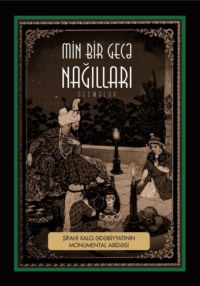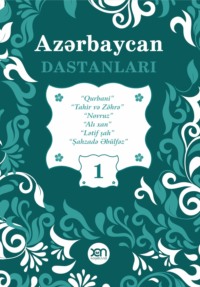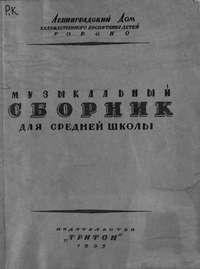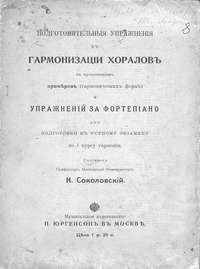 полная версия
полная версияA plain and literal translation of the Arabian nights entertainments, now entituled The Book of the Thousand Nights and a Night. Volume 6 (of 17)
She said, It hath reached me, O auspicious King, that the son of the Persian King, after disguising himself as an old man shotten in years and taking a seat in the garden, spread out somewhat of the jewels and ornaments before him and made a show of shaking and trembling as if for decrepitude and the weakness of extreme senility. After an hour or so a company of damsels and eunuchs entered with the Princess in their midst, as she were the moon among the stars, and dispersed about the garden, plucking the fruits and diverting themselves. Presently they espied a man sitting under one of the trees; and, making towards him (who was the Prince), found him a very old man, whose hands and feet trembled for decrepitude, and before him store of precious jewels and royal ornaments. So they marvelled at his case and asked him what he did there with the jewels; when he answered, “With these trinkets I would fain buy me to wife one of you.” They laughed together at him and said, “If one of us marry thee, what wilt thou do with her?” Said he, “I will give her one kiss and divorce her.” Then quoth the Princess, “I give thee this damsel to wife.” So he rose and coming up to her, leaning on a staff and shivering and staggering, kissed her and gave her the jewels and ornaments; whereat she rejoiced and they, laughing at him, went their way. Next day, they came again to the garden, and finding him seated in the same place, with more jewels and ornaments than before spread in front of him, asked him, “O Shaykh, what wilt thou do with this jewellery?”; and he answered, saying, “I wish therewith to take one of you to wife even as yesterday.” So the Princess said, “I marry thee to this damsel;” and he came up to her and kissed her and gave her the jewels, and they all went their ways. But, seeing such generosity to her handmaids, the Princess said in herself, “I have more right to all these fine things than these baggages, and no harm can betide me.” So when morning morrowed she went down from her chamber singly into the garden, in the habit of one of her damsels, and presenting herself privily before the Prince, said to him, “O Shaykh, the King’s daughter hath sent me to thee, that thou mayst marry me.” He looked at her and knew her; so he answered, “With love and gladness,” and gave her jewels and ornaments of the finest and costliest. Then he rose to kiss her, and she off her guard and fearing nothing but, when he came up to her, he suddenly laid hold of her with a strong hand and instantly throwing her down, on the ground abated her maidenhead.220 Then he pulled the beard from his face and said to her, “Dost thou not know me?” Asked she, “Who art thou?” and he answered, “I am Behram, the King’s son of Persia, who have changed my favour and am become a stranger to my people and estate for thy sake and have lavished my treasures for thy love.” So she rose from under him in silence and answered not his address nor spake a word of reply to him, being dazed for what had befallen her and seeing nothing better than to be silent, for fear of shame; and she bethought herself and said, “If I kill myself it will be useless and if I do him die, his death will profit me naught;” and presently added, “Nothing will serve me but that I elope with him to his own country.” Then she gathered together her monies and treasures and sent to him, acquainting him therewith, to the intent that he also might equip himself with his wealth and needs; and they agreed upon a night on which to depart. So, at the appointed time, they mounted race-horses and set out under cover of the gloom, nor did morning morrow till they had traversed a great distance; and they ceased not faring forwards till they drew near his father’s capital in the land of the Persians. When the King heard of his son’s coming, he rode out to meet him with his troops and rejoiced in him with exceeding joy. Then, after a few days, he sent the Princess’s father a splendid present, and a letter to the effect that his daughter was with him and demanding her wedding equipage. Al-Datma’s father came out to meet the messengers with the greatest gladness (for that he had deemed his daughter lost and had grieved sore for her loss): after which he made bride-feasts and, summoning the Kazi and the witnesses, let draw up the marriage-contract between his daughter and the Prince of Persia. He invested the envoys with robes of honour, then he made ready her equipage and despatched it to her; and Prince Behram abode with her till death sundered their union. See therefore, O King (continued the favourite), the malice of men in their dealing with women. As for me, I will not go back from my due till I die. So the King once more commanded to put his son to death; but the seventh Wazir came in to him and kissing the ground before him, said, “O King, have patience with me whilst I speak these words of good counsel to thee; how many patient and slow-moving men unto their hope attain, and how many who are precipitate fall into shameful state! Now I have seen how this damsel hath profligately excited the King by lies to horrible and unnatural cruelties; but I his Mameluke, whom he hath overwhelmed with his favours and bounties, do proffer him true and loyal rede; for that I, O King, know of the malice of women that which none knoweth save myself; and in particular there hath reached me, on this subject, the story of the old woman and the son of the merchant with its warning instances.” Asked the King, “And what fell out between them, O Wazir?” and the seventh Wazir answered:—I have heard tell, O King, the tale of
THE HOUSE WITH THE BELVEDERE. 221
A wealthy merchant had a son who was very dear to him and who said to him one day, “O my father, I have a boon to beg of thee.” Quoth the merchant, “O my son, what is it, that I may give it thee and bring thee to thy desire, though it were the light of mine eyes.” Quoth the youth, “Give me money, that I may journey with the merchants to the city of Baghdad and see its sights and sail on the Tigris and look upon the palace of the Caliphs222; for the sons of the merchants have described these things to me and I long to see them for myself.” Said the father, “O my child, O my little son, how can I endure to part from thee?” But the youth replied, “I have said my say and there is no help for it but I journey to Baghdad with thy consent or e’en without it: such a longing for its sight hath fallen upon me as can only be assuaged by the going thither.”–And Shahrazad perceived the dawn of day and ceased saying her permitted say.
Now when it was the Five Hundred and Ninety-ninth Night,She said, It hath reached me, O auspicious King, that the merchant’s son said to his sire, “There is no help for it but that I journey to Baghdad.” Now when the father saw that there was no help for it, he provided his son with goods to the value of thirty thousand gold pieces and sent him with certain merchants in whom he trusted, committing him to their charge. Then he took leave of the youth, who journeyed with his friends the merchants till they reached Baghdad, the House of Peace, where he entered the market and hired him a house, so handsome and delectable and spacious and elegant that on seeing it he well-nigh lost his wits for admiration; for therein were pavilions facing one another, with floors of coloured marbles and ceilings inlaid with gold and lapis lazuli, and its gardens were full of warbling birds. So he asked the door-keeper223 what was its monthly rent, and he replied, “Ten dinars.” Quoth the young man, “Speakest thou soothly or dost thou but jest with me?”. Quoth the porter, “By Allah, I speak naught but the truth, for none who taketh up his abode in this house lodgeth in it more than a week224 or two.” “And how is that?” quoth the youth; and quoth the porter, “O my son, whoso dwelleth in this house cometh not forth of it, except sick or dead, wherefore it is known amongst all the folk of Baghdad, so that none offereth to inhabit it, and thus cometh it that its rent is fallen so low.” Hearing this the young merchant marvelled with exceeding marvel and said, “Needs must there be some reason for this sickening and perishing.” However after considering awhile and seeking refuge with Allah from Satan the Stoned, he rented the house and took up his abode there. Then he put away apprehension from his thought and busied himself with selling and buying; and some days passed by without any such ill case befalling him in the house, as the door-keeper had mentioned. One day as he sat upon the bench before his door, there came up a grizzled crone, as she were a snake speckled white and black, calling aloud on the name of Allah, magnifying Him inordinately and, at the same time, putting away the stones and other obstacles from the path.225 Seeing the youth sitting there, she looked at him and marvelled at his case; whereupon quoth he to her, “O woman, dost thou know me or am I like any thou knowest?” When she heard him speak, she toddled up to him and saluting him with the salam, asked, “How long hast thou dwelt in this house?” Answered he, “Two months, O my mother;” and she said, “It was hereat I marvelled; for I, O my son, know thee not, neither dost thou know me, nor yet art thou like unto any one I know; but I marvelled for that none other than thou hath taken up his abode in this house but hath gone forth from it, dead or dying, saving thee alone. Doubtless, O my son, thou hast perilled thy young years; but I suppose thou hast not gone up to the upper story neither looked out from the belvedere there.” So saying, she went her way and he fell a-pondering her words and said to himself, “I have not gone up to the top of the house; nor did I know that there was a belvedere there.” Then he arose forthright and going in, searched the by-ways of the house till he espied, in a wall-corner among the trees, a narrow door between whose posts226 the spider had woven her webs, and said in himself, “Haply the spider hath not webbed over the door, but because death and doom is within.” However, he heartened himself with the saying of God the Most High, “Say, nothing shall befal us but what Allah hath written for us;”227 and opening the door, ascended a narrow flight of stairs, till he came to the terrace-roof, where he found a belvedere, in which he sat down to rest and solace himself with the view. Presently, he caught sight of a fine house and a well-cared for hard by, surmounted by a lofty belvedere, overlooking the whole of Baghdad, in which sat a damsel fair as a Houri. Her beauty took possession of his whole heart and made away with his reason, bequeathing to him the pains and patience of Job and the grief and weeping of Jacob. And as he looked at her and considered her curiously, an object to enamour an ascetic and make a devotee lovesick, fire was lighted in his vitals and he cried, “Folk say that whoso taketh up his abode in this house dieth or sickeneth. An this be so, yon damsel is assuredly the cause. Would Heaven I knew how I shall win free of this affair, for my wits are clean gone!” Then he descended from the terrace, pondering his case, and sat down in the house, but being unable to rest, he went out and took his seat at the door, absorbed in melancholy thought when, behold, up came the old woman afoot, praising and magnifying Allah as she went. When he saw her, he rose and accosting her with a courteous salam and wishes for her life being prolonged said to her, “O my mother, I was healthy and hearty till thou madest mention to me of the door leading to the belvedere; so I opened it and ascending to the top of the house, saw thence what stole away my senses; and now methinks I am a lost man, and I know no physician for me but thyself.” When she heard this, she laughed and said, “No harm shall befal thee Inshallah—so Allah please!” Whereupon he rose and went into the house and coming back with an hundred dinars in his sleeve, said to her, “Take this, O my mother, and deal with me the dealing of lords with slaves and succour me quickly for, if I die, a claim for my blood will meet thee on the Day of Doom.” Answered she, “With love and gladness; but, O my son, I expect thou lend me thine aid in some small matter, whereby hangs the winning of thy wish.” Quoth he, “What wouldst thou have me do, O my mother?” Quoth she, “Go to the silk-market and enquire for the shop of Abú al-Fath bin Kaydám. Sit thee down on his counter and salute him and say to him, “Give me the face-veil228 thou hast by thee orfrayed with gold:” for he hath none handsomer in his shop. Then buy it of him, O my son, at his own price however high and keep it till I come to thee to-morrow, Allah Almighty willing.” So saying, she went away and he passed the night upon live coals of the Ghazá229-wood. Next morning he took a thousand ducats in his pocket and repairing to the silk-market, sought out the shop of Abu al-Fath to whom he was directed by one of the merchants. He found him a man of dignified aspect, surrounded by pages, eunuchs and attendants; for he was a merchant of great wealth and consideration befriended by the Caliph; and of the blessings which Allah the Most High had bestowed upon him was the damsel who had ravished the young man’s heart. She was his wife and had not her match for beauty, nor was her like to be found with any of the sons of the Kings. The young man saluted him and Abu al-Fath returned his salam and bade him be seated. So he sat down by him and said to him, “O merchant, I wish to look at such a face-veil.” Accordingly he bade his slave bring him a bundle of silk from the inner shop and opening it, brought out a number of veils, whose beauty amazed the youth. Among them was the veil he sought; so he bought it for fifty gold pieces and bore it home well pleased.–And Shahrazad perceived the dawn of day and ceased to say her permitted say.
Now when it was the Six Hundredth Night,She said, It hath reached me, O auspicious King, that the youth after buying the veil of the merchant bore it home; but hardly had he reached the house when lo! up came the old woman. He rose to her and gave her his purchase when she bade him bring a live coal, with which she burnt one of the corners of the veil, then folded it up as before and, repairing to Abu al-Fath’s house, knocked at the door. Asked the damsel, “Who is there?”; and she answered, “I, such an one.” Now the damsel knew her for a friend of her mother so, when she heard her voice, she came out and opening the door to her, said, “What brought thee here, O my mother? My mamma hath left me and gone to her own house.” Replied the old woman, “O my daughter, I know thy mother is not with thee, for I have been with her in her home, and I come not to thee, but because I fear to pass the hour of prayer; wherefore I desire to make my Wuzu-ablution with thee, for I know thou art clean and thy house pure.”230 The damsel admitted the old trot who saluted her and called down blessings upon her. Then she took the ewer and went into the wash-house, where she made her ablutions and prayed in a place there. Presently, she came out again and said to the damsel, “O my daughter, I suspect thy handmaidens have been in yonder place and defiled it; so do thou show me another place where I may pray, for the prayer I have prayed I account null and void.” Thereupon the damsel took her by the hand and said to her, “O my mother, come and pray on my carpet, where my husband sits.” So she stood there and prayed and worshipped, bowed and prostrated; and presently, she took the damsel unawares and made shift to slip the veil under the cushion, unseen of her. Then she blessed her and went her ways. Now as the day was closing Abu al-Fath came home and sat down upon the carpet, whilst his wife brought him food and he ate of it his sufficiency and washed his hands; after which he leant back upon the cushion. Presently, he caught sight of a corner of the veil protruding from under the cushion; so he pulled it out and considered it straitly, when, knowing it for that he had sold to the young man, he at once suspected his wife of unchastity. Thereupon he called her and said, “Whence hadst thou this veil?” And she swore an oath to him, saying, “None hath come to me but thou.” The merchant was silent for fear of scandal, and said to himself, “If I open up this chapter, I shall be put to shame before all Baghdad;” for he was one of the intimates of the Caliph and so he could do nothing save hold his peace. So he asked no questions, but said to his wife, whose name was Mahzíyah, “It hath reached me that thy mother lieth ill of heart-ache231 and all the women are with her, weeping over her; wherefore I order thee to go to her.” Accordingly, she repaired to her mother’s house and found her in the best of health; and she asked her daughter, “What brings thee here at this hour?” So she told her what her husband had said and sat with her awhile; when behold, up came porters, who brought her clothes from her husband’s house, and transporting all her paraphernalia and what not else belonged to her of goods and vessels, deposited them in her mother’s lodging. When the mother saw this, she said to her daughter, “Tell me what hath passed between thee and thy husband, to bring about this.” But she swore to her that she knew not the cause thereof and that there had befallen nothing between them to call for this conduct. Quoth her mother, “Needs must there be a cause for this.” And she answered, saying, “I know of none, and after this, with Almighty Allah be it to make provision!” Whereupon her mother fell a-weeping and lamented her daughter’s separation from the like of this man, by reason of his sufficiency and fortune and the greatness of his rank and dignity. On this wise things abode some days, after which the curst, ill-omened old woman, whose name was Miryam the Koranist,232 paid a visit to Mahziyah in her mother’s house and saluted her cordially, saying, “What ails thee, O my daughter, O my darling? Indeed, thou hast troubled my mind.” Then she went in to her mother and said to her, “O my sister, what is this business about thy daughter and her husband? It hath reached me that he hath divorced her! What hath she done to call for this?” Quoth the mother, “Belike her husband will return to her by the blessed influence of thy prayers, O Háfizah; so do thou pray for her, O my sister, for thou art a day-faster and a night-prayer.” Then the three fell to talking together and the old woman said to the damsel, “O my daughter, grieve not for, if Allah please, I will make peace between thee and thy husband before many days.” Then she left them and going to the young merchant, said to him, “Get ready a handsome entertainment for us, for I will bring her to thee this very night.” So he sprang up and went forth and provided all that was fitting of meat and drink and so forth, then sat down to await the twain; whilst the old woman returned to the girl’s mother and said to her, “O my sister, we have a splendid bride-feast to-night; so let thy daughter go with me, that she may divert herself and make merry with us and throw off her cark and care, and forget the ruin of her home. I will bring her back to thee even as I took her away.” The mother dressed her daughter in her finest dress and costliest jewels and accompanied her to the door, where she commended her to the old woman’s charge, saying, “‘Ware lest thou let any of Almighty Allah’s creatures look upon her, for thou knowest her husband’s rank with the Caliph; and do not tarry, but bring her back to me as soon as possible.” The old woman carried the girl to the young man’s house which she entered, thinking it the place where the wedding was to be held: but as soon as she came into the sitting-saloon–And Shahrazad perceived the dawn of day and ceased saying her permitted say.
Now when it was the Six Hundred and First Night,She said, It hath reached me, O auspicious King, that as soon as the damsel entered the sitting-saloon, the youth sprang up to her and flung his arms round her neck and kissed her hands and feet. She was confounded at his loveliness, as well as at the beauty of the place and the profusion of meat and drink, flowers and perfumes that she saw therein, and deemed all was a dream. When the old woman saw her amazement, she said to her, “The name of Allah be upon thee, O my daughter! Fear not; I am here sitting with thee and will not leave thee for a moment. Thou art worthy of him and he is worthy of thee.” So the damsel sat down shamefast and in great confusion; but the young man jested and toyed with her and entertained her with laughable stories and loving verses, till her breast broadened and she became at her ease. Then she ate and drank and growing warm with wine, took the lute and sang these couplets:-
My friend who went hath returned once more;Oh, the welcome light that such beauty shows!And but for the fear of those arrowy eyes,From his lovely cheek I had culled the rose.And when the youth saw that she to his beauty did incline he waxt drunken without wine and his life was a light matter to him compared with his love.233 Presently the old woman went out and left them alone together to enjoy their loves till the next morning, when she went into them and gave them both good morrow234 and asked the damsel, “How hast thou passed the night, O my lady?” Answered the girl, “Right well, thanks to thy adroitness and the excellence of thy going-between235.” Then said the old woman, “Up, let us go back to thy mother.” At these words the young man pulled out an hundred sequins and gave them to her, saying, “Take this and leave her with me to-night.” So she left them and repaired to the girl’s mother, to whom quoth she, “Thy daughter saluteth thee, and the bride’s mother hath sworn her to abide with her this night.” Replied the mother, “O my sister, bear her my salam, and, if it please and amuse the girl, there is no harm in her staying the night; so let her do this and divert herself and come back to me at her leisure, for all I fear for her is chagrin on account of an angry husband.” The old woman ceased not to make excuse after excuse to the girl’s mother and to put off cheat upon cheat upon her, till Mahziyah had tarried seven days with the young man, of whom she took an hundred dinars each day for herself; while he enjoyed all the solace of life and coition. But at the end of this time, the girl’s mother said to her, “Bring my daughter back to me forthright; for I am uneasy about her, because she hath been so long absent, and I misdoubt me of this.” So the old woman went out saying, “Woe to thee! shall such words be spoken to the like of me? and, going to the young man’s house, took the girl by the hand and carried her away (leaving him lying asleep on his bed, for he was drunken with wine) to her mother.” She received her with pleasure and gladness and seeing her in redoubled beauty and brilliancy rejoiced in her with exceeding joy, saying, “O my daughter, my heart was troubled about thee and in my uneasiness I offended against this my sister the Koranist with a speech that wounded her.” Replied Mahziyah, “Rise and kiss her hands and feet, for she hath been to me as a servant in my hour of need, and if thou do it not thou art no mamma of mine, nor am I thy girl.” So the mother went up at once to the old woman and made her peace with her. Meanwhile, the young man recovered from his drunkenness and missed the damsel, but congratulated himself on having enjoyed his desire. Presently Miryam the old Koranist came in to him and saluted him, saying, “What thinkest thou of my feat?” Quoth he, “Excellently well conceived and contrived of thee was that same.” Then quoth she, “Come, let us mend what we have marred and restore this girl to her husband, for we have been the cause of their separation and it is unrighteous.” Asked he, “How shall I do?” and she answered, “Go to Abu al-Fath’s shop and salute him and sit down by him, till thou seest me pass by, when do thou rise in haste and catch hold of my dress and abuse me and threaten me, demanding of me the veil. And do thou say to the merchant:—Thou knowest, O my lord, the face-veil I bought of thee for fifty dinars? It so chanced that my handmaid put it on and burnt a corner of it by accident; so she gave it to this old woman, who took it, promising to get it fine-drawn236 and return it, and went away, nor have I seen her from that day to this.” “With joy and good will,” replied the young man, and rising forthright, walked to the shop of the silk merchant, with whom he sat awhile till behold, the old woman passed telling her beads on a rosary she held in hand; whereupon he sprang up and laying hold of her dress began to abuse and rail at her, whilst she answered him with fair words, saying, “Indeed, my son, thou art excusable.” So the people of the bazar flocked round the two, saying, “What is the matter?” and he replied, “O folk, I bought of this merchant a veil for fifty dinars and gave it to my slave-girl, who wore it awhile, then sat down to fumigate it with perfume. Presently a spark flew out of the censer and, lighting on the edge of the veil, burnt a hole in it. So we committed it to this pestilent old woman, that she might give it to who should fine-draw it and return it to us; but from that time we have never set eyes on her again till this day.” Answered the old woman, “This young man speaks sooth. I had the veil from him, but I took it with me into one of the houses where I am wont to visit and forgot it there, nor do I know where I left it; and, being a poor woman, I feared its owner and dared not face him.” Now the girl’s husband was listening to all they said,–And Shahrazad perceived the dawn of day and ceased to say her permitted say.









